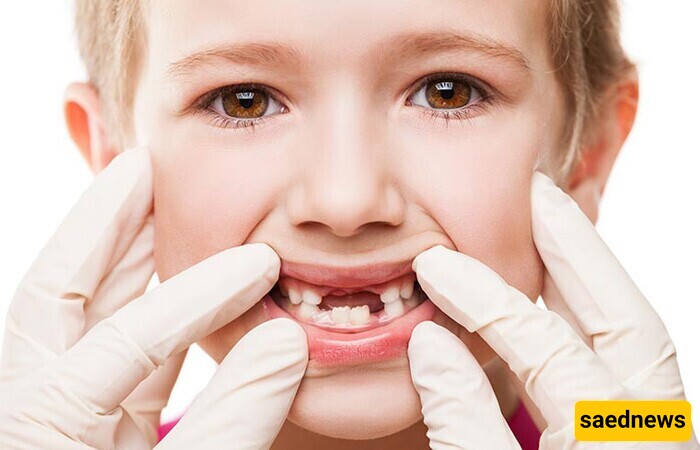Caring for a child involves many stages, one of which is teething. When your child smiles and you notice their teeth coming in, it's time to start oral hygiene.

According to the family magazine service of Saed News, baby teeth play a crucial role in a child's growth, including:
Helping the child chew, smile, and speak
Maintaining the proper space in the jaw for permanent teeth to emerge
Promoting healthy chewing habits that strengthen the jaw and facial muscles
Baby teeth significantly impact a child's development, improve their eating habits, help them articulate words more easily, and ultimately contribute to better growth and learning.
How Important Are Baby Teeth?
Baby teeth are essential because a child's mouth isn't big enough to accommodate adult teeth. These small teeth fit perfectly in a child's mouth, allowing them to start eating and speaking. Imagine if baby teeth remained in our mouths as we aged – the gaps between these tiny teeth would render them ineffective. Having two sets of teeth is crucial for a child to begin eating and talking while preparing for their permanent teeth in the future.
Impact of Baby Teeth on Permanent Teeth
Baby teeth have a direct influence on a child's permanent teeth. Each baby tooth creates space for an adult tooth to emerge. If a baby tooth is knocked out prematurely or decays, it can't maintain the proper space for an adult tooth, leading to misalignment and crowding in adulthood. Proper care of baby teeth and regular dental visits help prevent future issues.
Comparing Baby Teeth and Permanent Teeth
While baby and permanent teeth serve similar functions, there are differences:
Number: Baby teeth consist of 20 teeth, whereas permanent teeth consist of 32. This increase in number means that permanent teeth occupy more space.
Enamel: Baby teeth have a thinner layer of enamel compared to permanent teeth, making them more susceptible to decay.
Hardness: Baby teeth are softer than permanent teeth, making them more prone to grinding and damage from acidic foods.
Color: Baby teeth are naturally whiter than permanent teeth. This difference is evident when a child has both types of teeth in their mouth.
Because of these differences, it's important to choose age-appropriate toothpaste and a toothbrush designed for baby teeth to ensure proper dental care.
When Should I Take My Child to the Dentist?
Experts recommend taking your child to the dentist after their first tooth appears and before their first birthday.
The dentist can:
Identify any decay or dental issues
Explain how to clean your child's teeth properly
Offer suggestions for maintaining good oral hygiene and addressing thumb-sucking habits.


